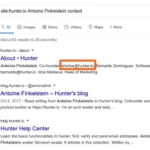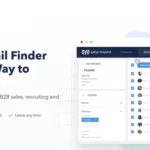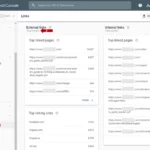Yes, it is possible to find someone’s address using their phone number. There are online services and directories that offer reverse phone lookup, allowing you to search for the owner’s address based on their phone number.
1. Why Would You Need to Find Someone’s Address?

There are various reasons why you might need to find someone’s address. Here are a few common scenarios where this information can be helpful:
1.1 Reconnecting with old friends or relatives: If you’ve lost touch with someone from your past and want to reconnect, finding their address can be a great way to reach out to them and reestablish a connection. Whether it’s a childhood friend or a distant relative, having their address can make it easier to send a letter or even pay them a visit.
1.2 Sending important documents: Sometimes, you may need to send important documents or packages to someone, such as legal papers, contracts, or official correspondence. Knowing their address is crucial in ensuring that the documents reach the intended recipient in a timely manner.
1.3 Planning a surprise or special occasion: If you’re planning a surprise party or a special occasion for someone, having their address is essential for sending out invitations or arranging for deliveries. It allows you to ensure that everything goes smoothly and that the surprise remains intact.
1.4 Personal or professional reasons: There may be personal or professional reasons that require you to locate someone’s address. For example, if you’re conducting genealogical research, finding the addresses of ancestors or relatives can provide valuable information. Similarly, if you’re in business and need to contact a client or partner, having their address can facilitate communication.
1.5 Safety concerns: In some cases, you may need to find someone’s address for safety reasons. This could be to track down a debtor, investigate a potential fraud, or even for legal purposes. It’s important to exercise caution and ensure that you’re following the appropriate legal procedures when using someone’s address for safety-related matters.
Remember, it’s crucial to respect privacy and use the obtained address responsibly and ethically. Whether you’re reconnecting with an old friend or sending important documents, always ensure that your intentions are genuine and lawful.
2. Legal Considerations

When attempting to find someone’s address, it is important to understand and adhere to legal considerations. Here are some key points to keep in mind:
2.1 Privacy laws: Different countries and regions have varying privacy laws that protect individuals’ personal information, including their address. It is crucial to familiarize yourself with the legal framework in your jurisdiction to ensure that you are not violating any privacy laws while searching for someone’s address.
2.2 Consent: In most cases, obtaining someone’s address without their consent is not legal. It is important to consider whether you have the necessary permission or legal grounds to access and use someone’s address. If you are unsure, it may be wise to consult with a legal professional to ensure that you are acting within the boundaries of the law.
2.3 Fair use: Even if you have obtained someone’s address legally, it is essential to use the information responsibly and for legitimate purposes. Misusing someone’s address, such as for harassment or unlawful activities, can lead to legal consequences.
2.4 Data protection: When using online methods or services to find someone’s address, it is important to consider data protection regulations. Ensure that the platforms or services you use adhere to data protection laws and have proper security measures in place to protect the personal information of both the person you are searching for and yourself.
2.5 Professional assistance: In some cases, it may be necessary to seek professional assistance, such as hiring a private investigator or working with legal authorities, to legally obtain someone’s address. These professionals have the expertise and knowledge to navigate the legal complexities involved in obtaining personal information.
Remember, it is crucial to always prioritize legal and ethical practices when searching for someone’s address. Respecting privacy laws, obtaining consent, and using the information responsibly are essential steps to ensure that you stay within legal boundaries and maintain ethical conduct.
3. Online Methods

When it comes to finding someone’s address, online methods can often provide quick and convenient solutions. Here are a few online techniques that can help you in your search:
3.1 Social Media and Search Engines: Social media platforms like Facebook, Twitter, and LinkedIn can be valuable resources for finding someone’s address. By searching for their name or username on these platforms, you may be able to find their profile, which could potentially contain their address information. Additionally, using search engines like Google can yield results if the person has made their address publicly available on websites or directories.
3.2 People Search Engines: People search engines, such as Spokeo, Whitepages, or Intelius, can provide detailed information about individuals, including their addresses. These platforms compile data from various sources and can be helpful in locating someone’s current or previous address. Simply enter the person’s name into the search bar, and the search engine will generate a list of possible matches along with their associated addresses.
3.3 Reverse Address Lookup Services: If you have an address but need to find out who resides there, reverse address lookup services can be useful. Websites like Zillow, BeenVerified, or Instant Checkmate allow you to enter an address and retrieve information about the current or past residents. This can be particularly helpful if you’re trying to find someone who has moved or if you’re conducting research on a specific property.
Remember, while these online methods can provide valuable information, it’s important to use them responsibly and within legal boundaries. Be sure to respect privacy and only use the obtained address for legitimate purposes. If you’re looking for specific email address information, check out our guide on how to find someone’s email owner.
3.1 Social Media and Search Engines
When it comes to finding someone’s address, social media platforms and search engines can be valuable resources. Here’s how you can utilize them:
3.1.1 Social Media: Social media platforms like Facebook, Instagram, and LinkedIn can provide valuable information about a person, including their address. Start by searching for the person’s name on these platforms. If their profile is public, you may be able to find their address listed in their bio or contact information. Additionally, you can try reaching out to mutual friends or acquaintances who may have the person’s address or can help facilitate contact.
3.1.2 Search Engines: Search engines like Google can also be useful in finding someone’s address. Start by entering the person’s name in the search bar along with other relevant details such as their city, workplace, or any other identifying information you may have. This can help narrow down the search results and potentially lead you to websites or online directories that have the person’s address listed.
It’s important to note that the information available on social media and search engines may not always be up to date or accurate. People may choose to keep their address private or may use aliases online. Additionally, be mindful of privacy concerns and respect the person’s boundaries when attempting to find their address through these methods.
If you’re unable to find the address through social media and search engines, there are other online methods and resources you can explore, such as people search engines and reverse address lookup services, which we will discuss in the following sections.
Read more: How to Find Email Address by Phone Number
3.2 People Search Engines
3.2 People Search Engines: People search engines are online platforms that aggregate public information about individuals from various sources and make it easily accessible. These search engines can be useful tools in finding someone’s address. Here’s how they work:
3.2.1 Input the person’s name: To begin your search, you’ll need to input the person’s full name into the search engine. Some search engines may also allow you to narrow down your search by including additional information such as their age, location, or any known affiliations.
3.2.2 Browse through the search results: Once you initiate the search, the people search engine will generate a list of potential matches based on the information provided. These results may include the person’s name, age, possible relatives, and even their address.
3.2.3 Refine your search: If the initial search results are too broad or don’t provide the desired information, you can refine your search by adding more specific details. This could include the person’s middle name, previous addresses, or any other relevant information that may help narrow down the results.
3.2.4 Verify the information: It’s important to note that the information provided by people search engines may not always be accurate or up to date. It’s crucial to verify the address through other reliable sources before taking any further action.
3.2.5 Consider the limitations: While people search engines can be a helpful tool, it’s important to be aware of their limitations. Not all individuals may be listed in these databases, especially if they have taken measures to maintain their privacy. Additionally, certain search engines may require a subscription or payment for access to more detailed information.
3.2.6 Protect your own privacy: When using people search engines, it’s essential to consider your own privacy as well. Be mindful of the information you provide and the permissions you grant to these platforms. Additionally, ensure that you’re using reputable and secure search engines to protect your personal data.
People search engines can provide a starting point for finding someone’s address, but it’s always advisable to cross-reference the information obtained with other reliable sources, such as public records or official government databases. This will help ensure the accuracy and validity of the address before proceeding with any communication or correspondence.
3.3 Reverse Address Lookup Services
Reverse address lookup services are powerful tools that can assist you in finding information about a person based on their address. These services work by allowing you to input an address, and in return, they provide you with details about the individual associated with that address. This can include the person’s name, phone number, email address, and even their social media profiles.
To use a reverse address lookup service, simply visit a reputable website that offers this service and enter the address you want to search. The website will then scan its database and provide you with any available information linked to that address. Keep in mind that not all services are free, and some may require a fee to access more detailed information.
One important thing to note is that the accuracy and comprehensiveness of the information provided by reverse address lookup services can vary. While some services may have extensive databases and provide accurate results, others may have limited information or outdated records. It’s always a good idea to cross-reference the information obtained from these services with other reliable sources to ensure its accuracy.
It’s also worth mentioning that reverse address lookup services may have limitations based on privacy laws and regulations. Some countries or regions may have restrictions on the type of information that can be obtained through these services. Always make sure to use these services in compliance with the applicable laws and regulations in your jurisdiction.
Reverse address lookup services can be a valuable resource when trying to find information about someone based on their address. They can provide you with additional details that can aid in your search, such as contact information and online presence. However, it’s important to use these services responsibly and verify the obtained information through other reliable sources.
If you are interested in finding someone’s email address, you can check our guide on how to find someone’s Gmail address for more information.
4. Public Records and Government Databases

Public records and government databases can be valuable resources when trying to find someone’s address. Here are some key sources to consider:
4.1 Property Records: Property records are publicly available and can provide information about a person’s current or previous addresses. You can check property tax records, real estate websites, or even visit the local assessor’s office to access this information.
4.2 Voter Registration: Voter registration records are often accessible to the public and can include a person’s address. Check with your local election office or use online voter registration databases to search for the address you’re looking for.
4.3 Business Registrations: If the person you’re searching for owns a business, their address may be listed in business registration records. Look for local business directories or use online business databases to find this information.
4.4 Court Records: Court records can sometimes provide addresses, especially if the person has been involved in legal proceedings. Check online court databases or visit the local courthouse to access these records.
Remember to use these public records and government databases responsibly and within the bounds of the law. It’s important to respect privacy and ensure that you have a legitimate reason for searching for someone’s address.
4.1 Property Records
4.1 Property Records: Property records can be a valuable resource when trying to find someone’s address. These records are typically maintained by local government agencies and provide information about property ownership, including the address of the property. Here’s how you can use property records to find someone’s address:
4.1.1 County Assessor’s Office: The county assessor’s office is responsible for assessing and valuing properties within a specific jurisdiction. They maintain records that include the address of the property, the owner’s name, and other relevant details. To access property records, you can visit the assessor’s office in person, contact them via phone or email, or check their website if they have an online database. Keep in mind that procedures and availability of records may vary by location.
4.1.2 Online Property Search Tools: Many counties and municipalities have started digitizing their property records, making it easier to access them online. These online property search tools allow you to search by the owner’s name or property address and retrieve information such as the property’s address, ownership history, and property tax records. Some websites may require you to create an account or pay a fee to access detailed information.
4.1.3 Real Estate Websites: Another option is to utilize real estate websites that aggregate property data from various sources. These websites often provide access to property records, including the address, owner’s name, and other relevant information. You can search for the property by entering the owner’s name or address and browse through the results to find the desired address.
4.1.4 Public Records Search Engines: Public records search engines are online platforms that compile public records from multiple sources and make them easily searchable. These websites may include property records as part of their database. You can search for the owner’s name or property address to find the associated address information. Keep in mind that some of these platforms may require a subscription or payment for full access to the records.
When using property records to find someone’s address, it’s important to ensure you have the correct and up-to-date information. Property ownership can change over time, so it’s a good idea to verify the accuracy of the records through multiple sources if possible. Additionally, be mindful of the privacy and legal implications of using property records, and only use the information for lawful and ethical purposes.
4.2 Voter Registration
Voter registration records can be a valuable resource when trying to find someone’s address. These records are maintained by government agencies and provide information on individuals who are registered to vote in a specific jurisdiction. Here’s how you can use voter registration to help locate someone’s address:
4.2.1 Check the official government website: Many government websites have an online portal where you can search for voter registration information. Visit the website of the relevant government agency, such as the Secretary of State’s office or the county clerk’s office, and look for a section dedicated to voter registration. There, you may find a search tool or a database that allows you to search for registered voters by name, address, or other identifying information. Enter the required details and see if you can find the address you’re looking for.
4.2.2 Visit the local election office: If the official government website doesn’t provide the information you need, consider visiting the local election office in the jurisdiction where the person is registered to vote. Inquire about accessing the voter registration records and explain the reason for your request. Depending on the jurisdiction, you may be able to view the records in person or request a copy of the information. Keep in mind that there may be restrictions or fees associated with accessing these records, so be prepared to comply with any requirements.
4.2.3 Reach out to the voter registration office: If visiting the election office is not feasible, you can try contacting them via phone or email. Explain your situation and ask if they can assist you in finding the address of the individual you’re searching for. They may be able to provide you with the information directly or guide you on the steps to access the records.
It’s important to note that voter registration records are subject to privacy laws and regulations, and access to this information may be restricted in some cases. Additionally, keep in mind that voter registration records may not always have the most up-to-date address information, as individuals may have moved or changed their address since registering to vote. It’s recommended to cross-reference this information with other sources to ensure accuracy.
By utilizing voter registration records, you can increase your chances of finding someone’s address, especially if they are registered to vote in the jurisdiction you’re searching. Just remember to comply with any legal requirements and respect privacy regulations when accessing and using this information.
4.3 Business Registrations
Business registrations can be a valuable resource when trying to find someone’s address. Many countries require businesses to register with governmental or regulatory agencies, and these registrations often include the business owner’s address. Here are some methods you can use to access business registration records:
4.3.1 Online Business Directories: Online directories such as Yellow Pages, Yelp, or Google My Business can provide valuable information about businesses, including their addresses. Simply search for the business name and location in these directories, and you may find the address you’re looking for.
4.3.2 Secretary of State Websites: In the United States, each state has a Secretary of State website where businesses are typically registered. These websites often provide a search function that allows you to look up businesses by name, owner’s name, or address. By searching for the business name or owner’s name, you can access the registration information, which may include the address.
4.3.3 Chamber of Commerce: Local chambers of commerce often maintain directories of businesses in the area. These directories may include the business address, contact information, and other relevant details. Contacting the chamber of commerce in the specific locality can help you obtain the address you’re looking for.
4.3.4 Business License Databases: Some jurisdictions maintain public databases of business licenses, which often include the address of the business owner. Check with the local government or licensing agencies to see if they have an online database that you can search.
It’s important to note that accessing business registration records is typically easier for registered businesses than for individuals. However, if the person you’re looking for owns a business, these methods can be useful in finding their address. Always ensure that you’re using the obtained information legally and ethically, and respect any privacy considerations that may apply.
4.4 Court Records
Court records can be a valuable resource when trying to find someone’s address. These records are typically public and can provide information about an individual’s legal history, including their address. Here are some ways you can access court records to find someone’s address:
1. Online court records search: Many courts now have online databases where you can search for case information. These databases may provide access to court records, including addresses, for individuals involved in legal proceedings. Visit the official website of the court in question to see if they offer an online search option.
2. County clerk’s office: If the court records you need are not available online, you can visit the county clerk’s office in the jurisdiction where the individual resides or has had legal matters. County clerk offices maintain records of court cases and may allow you to search for information in person. Be prepared to provide relevant details such as the person’s full name and any known case numbers.
3. Public access terminals: Some courts provide public access terminals where you can search for court records. These terminals are usually available at the courthouse or local library. Check with the court or library in the relevant jurisdiction to see if they offer this service.
4. Third-party websites: There are also third-party websites that compile court records from various jurisdictions. These websites may require a fee or subscription to access their database. Keep in mind that the accuracy and comprehensiveness of these websites can vary, so it’s important to use reputable sources.
When searching court records, it’s crucial to understand any restrictions or limitations imposed by the jurisdiction. Some information may be restricted due to privacy concerns or sealed records. Always follow legal and ethical guidelines when accessing and using court records to find someone’s address.
Remember, court records should be used responsibly and for lawful purposes. It’s important to respect individuals’ privacy and only use the obtained address for legitimate reasons.
5. Hiring a Professional

If you’ve exhausted all your options and still can’t find the address you’re looking for, or if you simply don’t have the time or resources to conduct a thorough search yourself, hiring a professional may be a viable option. There are professionals who specialize in locating individuals and obtaining their addresses.
5.1 Private Investigators: Private investigators are skilled in conducting investigations and have access to various databases and resources that may not be readily available to the general public. They have experience in finding people and can utilize their expertise to track down someone’s address. While hiring a private investigator may be more expensive than other methods, it can be a reliable and efficient way to find the information you need.
5.2 Skip Tracers: Skip tracers are professionals who specialize in locating individuals who have purposely gone off the grid, often to avoid legal or financial obligations. They have access to specialized databases and techniques for finding people’s addresses. Skip tracers can be particularly helpful if you’re trying to locate someone who doesn’t want to be found.
5.3 Background Check Services: There are online background check services that offer address search options. These services compile data from various sources and provide detailed reports that include addresses, phone numbers, and other personal information. While these services may not always provide up-to-date or accurate information, they can be a useful starting point in your search.
Before hiring a professional, it’s important to do your research and ensure that they are reputable and trustworthy. Look for reviews and testimonials, and consider reaching out to others who have used their services in the past. Additionally, be prepared to provide any relevant information or documentation that may assist the professional in their search.
Remember, hiring a professional should be a last resort if other methods have been unsuccessful. It’s important to weigh the cost and benefits of hiring a professional against the urgency and importance of finding the address.
6. Privacy and Ethics
When it comes to finding someone’s address, it is important to consider privacy and ethics. Obtaining someone’s address without their consent raises questions about privacy and personal boundaries. Here are some key points to keep in mind:
6.1 Legal considerations: Before attempting to find someone’s address, it is important to understand the legalities surrounding this action. Laws regarding privacy and data protection vary from country to country, so it is crucial to familiarize yourself with the laws in your jurisdiction. Engaging in illegal activities, such as stalking or harassment, is strictly prohibited and can lead to severe legal consequences.
6.2 Consent and permission: Respecting someone’s privacy means obtaining their consent before accessing their personal information, including their address. If you are trying to find someone’s address for a legitimate reason, such as reconnecting or sending important documents, it is advisable to seek their permission beforehand. Open and honest communication is key to ensuring ethical behavior.
6.3 Responsible use of information: Once you have obtained someone’s address, it is crucial to use the information responsibly. Avoid sharing or selling the address to unauthorized individuals or organizations. Only use the address for the intended purpose and refrain from any misuse or harm. Remember, ethical behavior involves respecting the boundaries and rights of others.
6.4 Data protection: In today’s digital age, data protection is of utmost importance. When using online methods to find someone’s address, ensure that you are using reputable and secure platforms. Be cautious of sharing personal information online and regularly update your privacy settings to protect your own data as well.
6.5 Ethical dilemmas: In some cases, the decision to find someone’s address may present ethical dilemmas. Consider the potential consequences of your actions and assess whether your intentions are genuine and justified. If you have any doubts or concerns, it may be best to consult with a legal professional or seek advice from an ethical standpoint.
Maintaining privacy and acting ethically should be top priorities when attempting to find someone’s address. It is important to be aware of legal considerations, obtain consent, use the information responsibly, and prioritize data protection. By following these guidelines, you can navigate the process in an ethical and respectful manner.
Conclusion
In conclusion, finding someone’s address can be a valuable and sometimes necessary task. Whether you’re trying to reconnect with old friends or relatives, send important documents, plan a surprise, or for personal and professional reasons, having someone’s address can be extremely useful. Throughout this guide, we have explored various methods and resources that can assist you in your search, including online techniques such as social media and people search engines, accessing public records and government databases, and even the option of hiring a professional. However, it’s important to keep in mind the legal considerations, privacy concerns, and ethical implications associated with finding someone’s address. Always ensure that you’re following the appropriate legal procedures and respecting privacy when using this information. Use the obtained address responsibly and ethically, keeping in mind the reasons for your search and the importance of maintaining trust and respect in personal and professional relationships.
Frequently Asked Questions
1. Can I find someone’s address using their phone number?
Yes, it is possible to find someone’s address using their phone number. There are online services and directories that offer reverse phone lookup, allowing you to search for the owner’s address based on their phone number.
2. Is it legal to search for someone’s address?
Searching for someone’s address is generally legal, as long as you are using the information for lawful purposes and following any applicable privacy laws. However, it’s important to respect privacy and use the information responsibly.
3. How accurate are online people search engines?
The accuracy of online people search engines can vary. While some may provide up-to-date and accurate information, others may have outdated or incorrect data. It’s always a good idea to cross-reference the information obtained from these sources with other reliable sources.
4. Can I find someone’s address through social media?
It is possible to find someone’s address through social media, especially if they have shared it publicly on their profile. However, keep in mind that not everyone includes their address on social media, and privacy settings may limit access to certain information.
5. Are there any free methods to find someone’s address?
Yes, there are free methods to find someone’s address, such as searching public records or using online directories. However, these free methods may not always provide the most up-to-date or accurate information.
6. Are there any restrictions on accessing public records?
Access to public records may be subject to certain restrictions and requirements depending on your jurisdiction. It’s important to familiarize yourself with the laws and regulations governing public records access in your area.
7. Can I hire a private investigator to find someone’s address?
Yes, hiring a private investigator is an option if you’re having difficulty finding someone’s address on your own. Private investigators have access to specialized databases and investigative techniques that can help locate individuals.
8. Can I find someone’s address through their email address?
Finding someone’s address through their email address can be challenging, as email addresses are not typically associated with physical addresses. However, if the person has included their address in their email signature or if they have used their email address to register for a service that displays their address, it may be possible to find it.
9. How can I protect my own address from being found?
To protect your own address from being easily found, you can take measures such as keeping your personal information private on social media, opting out of public directories, using a P.O. Box instead of your home address, and being cautious about sharing your address online.
10. Are there any ethical considerations when searching for someone’s address?
Yes, there are ethical considerations when searching for someone’s address. It’s important to use the information responsibly, respect privacy, and ensure that your intentions for obtaining the address are lawful and genuine.







